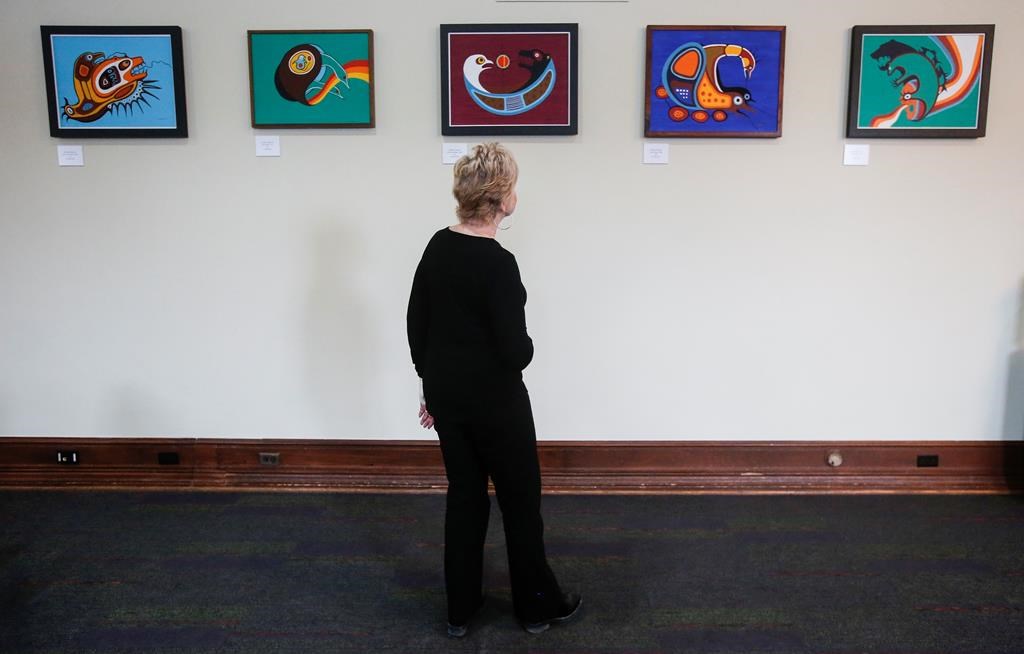WINNIPEG — Scattered throughout the century-old Manitoba Legislative Building are the works of famed Indigenous artists, including Daphne Odjig and Jackson Beardy.
Some pieces hang in offices, while others are placed for passersby to see.
Now, one room in the historic building is home to a semi-permanent exhibit showcasing more than 20 pieces of Indigenous art.
Having one space that captures the province’s vast collection of contemporary and traditional Indigenous art was something Myrna Driedger envisioned during her years as Speaker. She chose not to seek re-election as a Progressive Conservative legislature member earlier this year.
“It was always at the back of my mind that it was something that I would love to see in the building, so that the building itself becomes a little bit more representative of our history,” Driedger said in an interview on Thursday.
“Manitoba is pretty lucky that we have a building as beautiful as this, and now we have a room that is as inspiring as this.”
Artwork from Beardy, who was Oji-Cree, and Odjig, who was Potawatomi, shares the same walls as pieces from Ojibway artist Jackie Traverse and Inuk artist Marion Tuu’luq in the Golden Boy room, named after the prominent statue perched on the top of the Legislative Building.
The public room was chosen because it is available to everyone and is often used to host events.
“(The works of art) are not stuck in some office somewhere where people can’t enjoy them,” said Driedger.
“To have them on display in one room, it has a bigger impact than if it’s scattered all over and nobody sees them.”
The province has amassed more than 2,800 pieces in the roughly 50 years since it started its art collection. A diverse array of artists and art is represented in the collection, a spokesperson for the province said. This includes portraiture, still life, caribou tuftings, bold abstractions and wildlife studies.
While the province has obtained a considerable amount of Indigenous art, the spokesperson said they do not have a total figure due in part to incomplete documentation and artists’ heritage disclosure.
The province’s art collection is displayed in more than 100 buildings and public spaces across Manitoba.
When it came to deciding which pieces would be included in the exhibit, Driedger turned to Amy Karlinsky, who is the province’s visual arts consultant.
“We researched where were some of what we understood to be significant pieces, where were they in which offices,” said Karlinsky.
“We were looking for what are some of the earliest acquisitions in contemporary Indigenous art. And we balanced that with some of the more recent acquisitions.”
Some of those earlier works, including drawings by Odjig, were purchased by the government in the 1960s and 1970s.
One of the more recent pieces comes from Cree and Métis artist Carly Morrisseau, whose work uses Cree syllabics as a way to revitalize the language.
When asked which artwork resonates most with her, Driedger pointed to a large, colourful painting.
The piece by Traverse called “Council of Women” depicts a circle of women against a vibrant orange background.
“I just love it,” said Driedger, who worked to break down barriers for women in leadership roles during her 25-year career.
This report by The Canadian Press was first published Nov. 10, 2023.
Brittany Hobson, The Canadian Press

